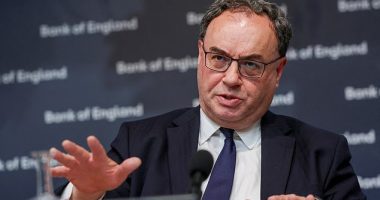INFLATION has soared to 6.2% according to new data from the Office for National Statistics, squeezing household budgets.
Rates rose by another 7 percentage points in February, up from 5.5% in January – an eye-watering high not seen in decades.
It means inflation is now at its highest level since March 1992, when it soared to a record-breaking high of 7.1%.
Inflation is a measure of how much the prices of goods and services have changed over time.
When it goes up, prices on everyday items and essentials from groceries to fuel to transport costs also rise too – which means you’ll be paying more just to get by.
The ONS said energy, fuel and food price rises were the biggest contributor to the latest inflation rate increase.
Its not the last of inflation rate hikes Brits should expect to see – experts predict inflation is set to soar to 7% by April.
How will it affect household finances?
Inflation has a double-whammy effect on households.
Firstly, you’ll notice the cost of everyday essentials going up.
That means at the supermarket your weekly shop will be higher, and your bills at home will rocket too.
The average increase in prices is usually based on how much things cost today compared to a year ago.
So if the rate of inflation were to be 2%, it means something that cost £1 a year ago will cost £1.02 today – it might not sound a lot but it soon adds up when everything goes up.
Further hurting households is the fact that wages failed to keep up with inflation last year, so Brits have less in their pockets to fork out on all the rocketing costs.
If your salary hasn’t kept up with the soaring rates, then you could find it harder to afford the cost of getting by.
That’s because a higher rate of inflation means your money doesn’t go as far and you have to spend more as a result.
The second effect of inflation is that is eats away at the value of your savings.
If inflation is higher than the interest you’re earning on your savings, you are effectively losing money every year.
Sarah Coles, senior personal finance analyst at Hargreaves Lansdown said: “If you’re making 0.01% on your savings with a typical high street easy access account, and inflation runs at an average of 5% for the next 12 months, someone with £10,000 of savings would lose £499 of the spending power of their money.
“If you switched to the most competitive easy access account, paying 0.73%, you could hold onto an extra £72 of your spending power.”











